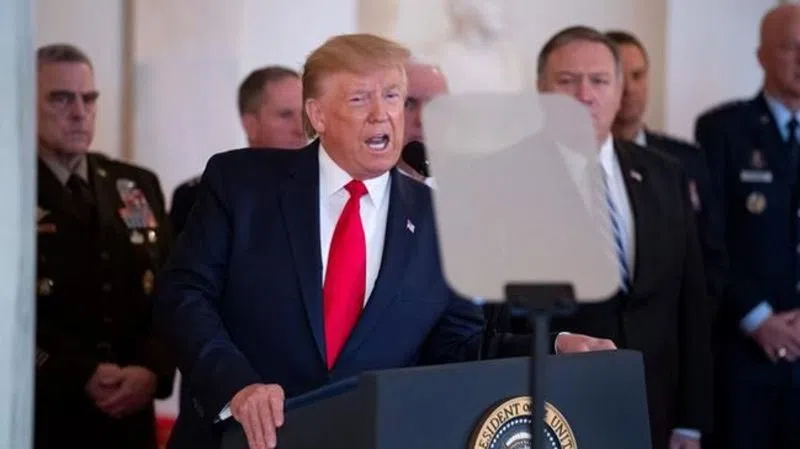
In addressing Middle East tensions, Trump calls for end to Iran nuclear deal
WASHINGTON — President Donald Trump appeared to hold his fire Wednesday in America’s standoff with Iran, opting instead to promise fresh economic sanctions, prod NATO allies to do more and demand an end to a “very defective” international deal that aspired to slow Tehran’s nuclear ambitions.
After a nervous night that began with a barrage of Iranian missiles raining down on two Iraqi military bases where U.S. soldiers are stationed, Americans tuned in to hear just to how their famously unpredictable president might respond.
But Trump, flanked by senior members of his national security team, appeared willing to take advantage of an opening that some observers speculated might have been there by design: the fact that none of Iran’s missiles — fired in retribution for last week’s killing of Maj.-Gen. Qassem Soleimani — drew any American blood.
“All of our soldiers are safe and only minimal damage was sustained at our military bases,” the president said in a statement from the White House.
